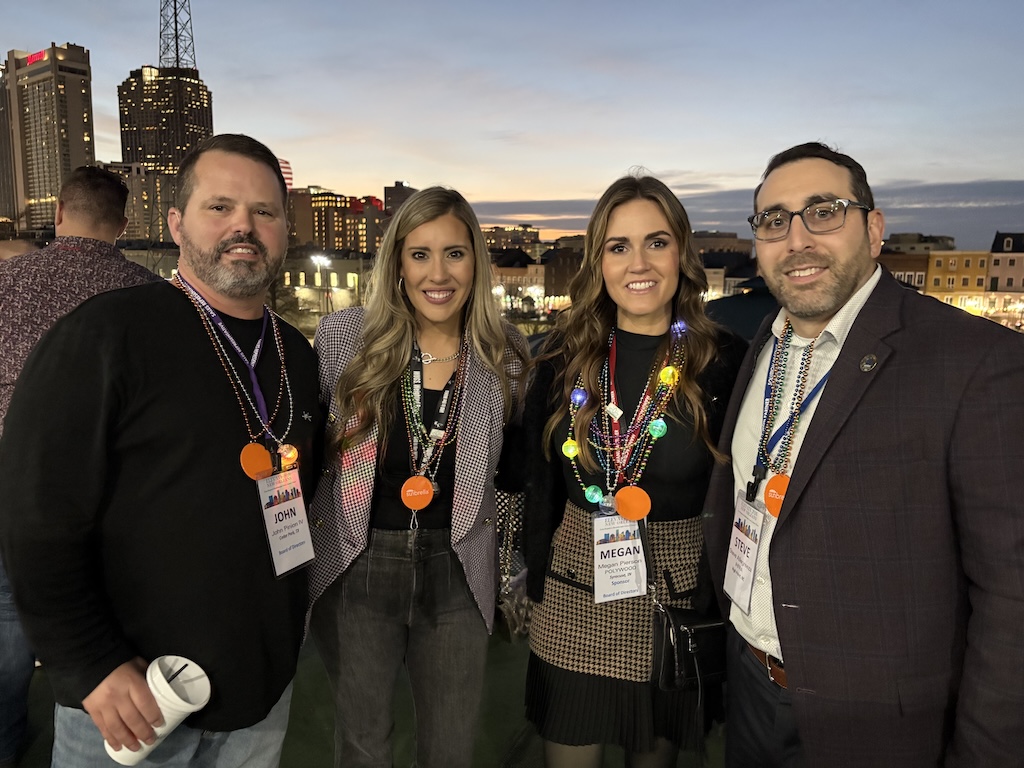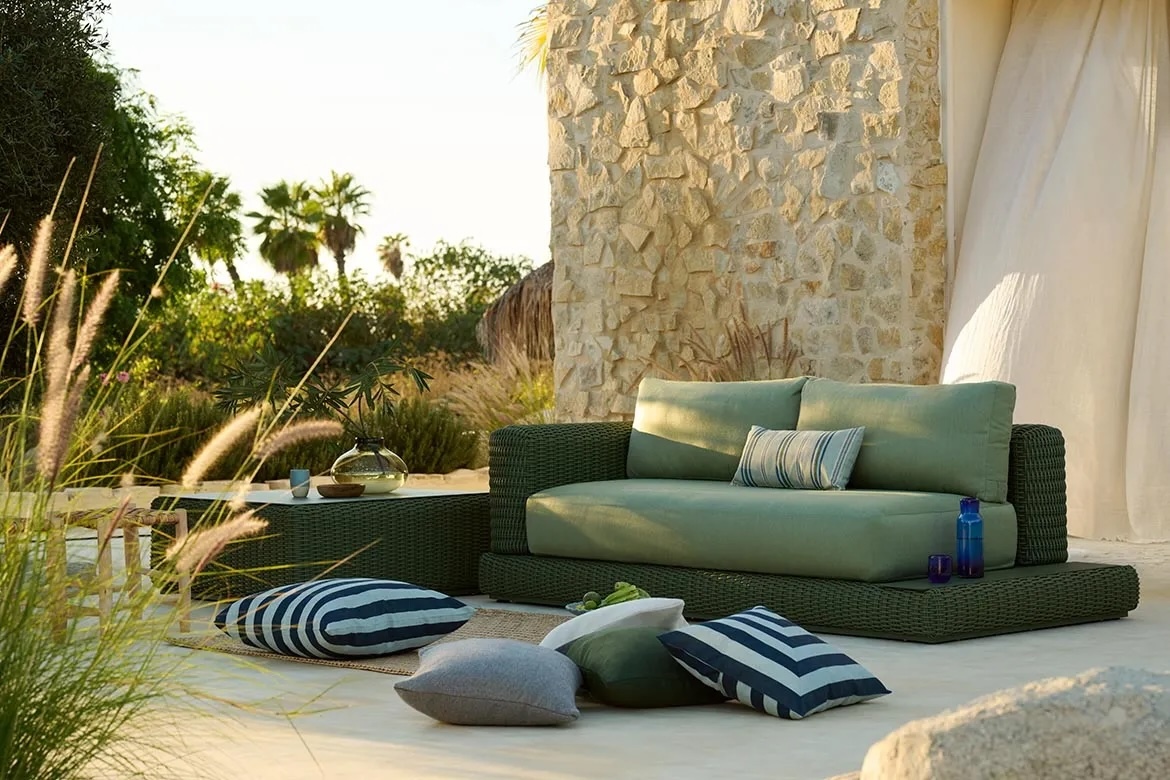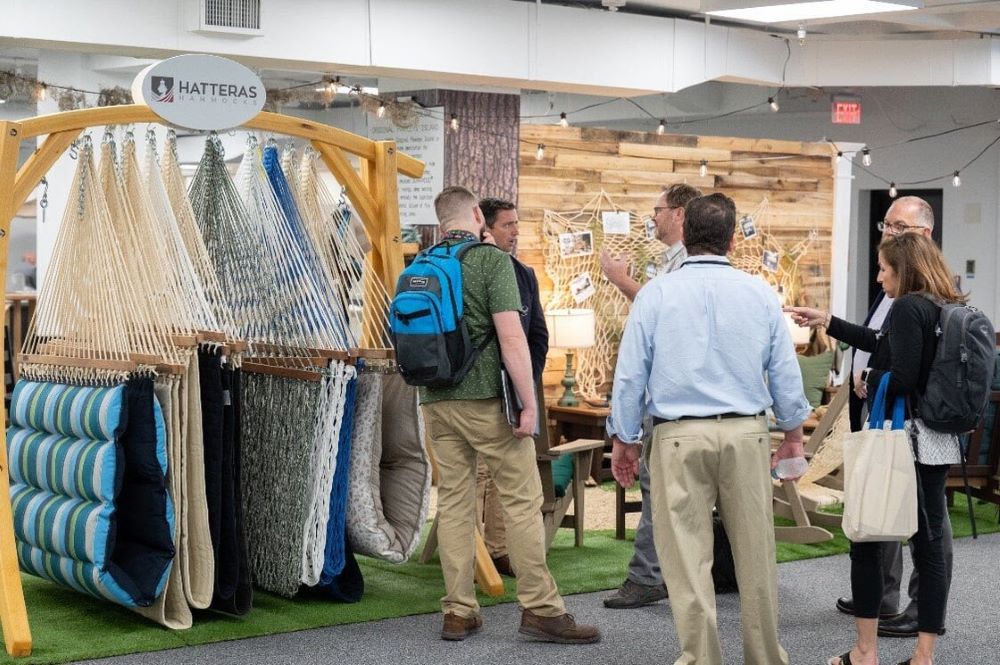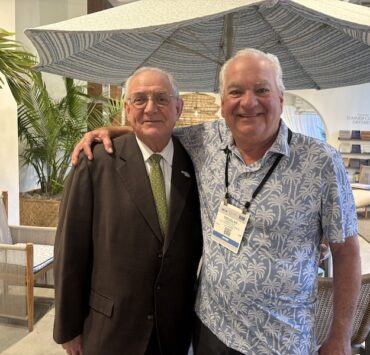The ongoing economic turmoil from President Donald Trump’s import tariffs and less-than-optimal weather patterns during the spring and early summer continued to have an impact on Casual Market Atlanta, which was held this past week at AmericasMart.
Traffic at the fall edition of the show was noticeably down, with many owing that drop to the pressure felt by retailers in the wake of a slower selling season affected by a combo of tariffs and unfavorable weather patterns in the spring and early summer.
“Even for those who don’t manufacture in China, there have been effects,” said Chelsey Wolf, product and marketing manager, Agio. “I was talking to another company, and they told me they had retailers who aren’t coming to this market because the tariffs have hit them hard. Consumer confidence has dropped along with people buying, so these retailers have inventory sitting around — it’s a trickle-down effect.”
Wolf said that the tariffs spurred Agio to diversify its manufacturing, opening factories in Cambodia and Indonesia, which both are subject to 19% tariffs as opposed to the current 30% on Chinese imports.
Even North American manufacturers such as Canada-based C.R. Plastics have felt that trickle-down effect. The company’s U.S. Sales Manager Eddie Delaney said that initially, C.R. Plastics decided to absorb tariff costs, but exemptions on trade with Canada have lessened the burden. But the company still has seen impacts via its retailers.
“We just had one of our big retailers in here from New Jersey who said it affected their business overall because of having to absorb increases on synthetic wicker,” he said. “So even though the tariffs don’t have a direct effect on our pricing, it affected our business because our retailers were affected, and the consumer was affected.”
Consumer confidence dropped by 4.8% from August to September, according to the University of Michigan’s preliminary Survey of Consumers. The headline consumer index is down by 21% from a year ago.
MamaGreen manufactures in Indonesia, and while that means a lower tariff rate, Vice President of Sales Mark Osborne said the uncertainty induced by the constantly changing duties has made things complicated for many in the industry.
“Tariffs have definitely impacted our business,” Osborne said. “When you think you have it and figure out the new normal, it changes. You pivot to work with your customers to be transparent and upfront so they can make decisions, but now we don’t know what’s going on with this 50-day review.”
That review comes as part of a Court of Appeals for the Federal Circuit affirmation of the decision by the Court of International Trade’s ruling that Trump’s reciprocal tariffs against China — which ballooned to 125% in the spring. The Supreme Court will hear oral argument on the pending appeal from the Trump Administration beginning on Nov. 5.
Late last month, President Trump announced via Truth Social that he would look into additional tariffs specifically for furniture imports. At a cabinet meeting later that week, he said that those duties would bring furniture production back to places such as North Carolina, promising, “It’s going to happen like magic.”
But the furnishings produced in areas such as Hickory and High Point, North Carolina, have primarily been indoor upholstery and case goods — not outdoor furniture. And for outdoor products made with materials such as teak or synthetic weave, or those aiming to hit a certain price point, domestic production may not be possible.
“I support a made in America product,” said Allen Caldzadilla, president of Pelican Reef and Skyline Design. “I wish I could partner with an OEM supplier, but I can’t add my little margin to the prices they’re quoting me — it’s not feasible. My family’s not going to open a factory in South Florida to start weaving and cutting the teak wood to make our furniture in three or four months after a tariff announcement. I can’t pull that off.”
Weather also presented challenges for retailers in multiple regions of the United States. A rare May nor’easter brought heavy rain and cooler temperatures just before Memorial Day weekend to the Northeast, while multiple severe weather events brought rain and wind to the South. More than a dozen states experienced one of their five wettest Mays on record, according to the National Oceanic and Atmospheric Administration.
“It has been a funky year, particularly with the weather,” said Henry Vanderminden IV, president, Telescope Casual Furniture. “A dealer in New Jersey told us they had April weather in April, May and June. It’s not all the economy or tariffs — weather played a role.”
The Telescope showroom, along with several other domestic manufacturers, once again stayed busy this market, continuing the trend from July. No doubt those manufacturers have benefited from tariffs, with retailers looking for alternatives to import products.
Ultimately, whether the disruption comes in the form of tariffs or rain, casual companies have learned that being informed and nimble is the only way they will be able to roll with the economic or climate punches.
“For us, it’s planning ahead as best we can while trying to look ahead,” said Benjamin Ma, vice president, Treasure Garden. “Everything is done very consciously, taking calculated risks. It’s about how quickly can we react if something changes so that our customers don’t feel any interruption.”








